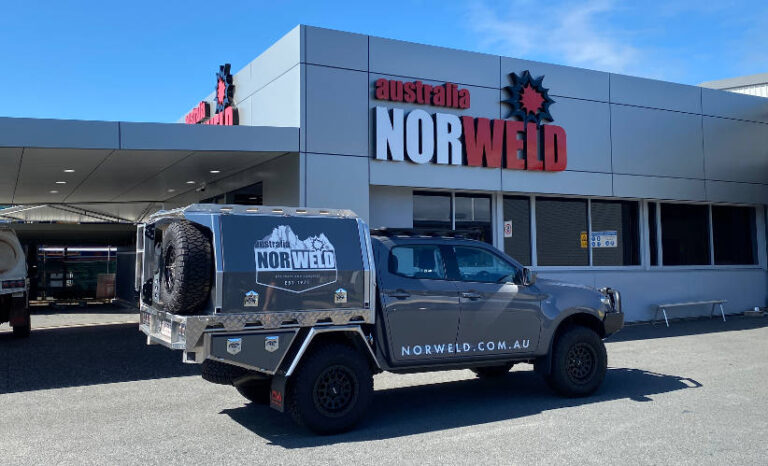While writing some articles on load management I found myself delving into service bodies to understand how fleets carry tools and equipment to get the job done without overloading the vehicle. And this lead me to Cairns in the middle of a cold Sydney winter.
Travelling to Cairns and escaping the cold was a tough assignment, though I had to do it because I was intrigued to learn more about Norweld, a local manufacturing success story that had been building alloy trays and canopies for 51 years.
Norweld has built its success in the 4X4 off-road market and was finding opportunities with fleet customers looking for durable, long lasting canopies that didn’t crack or break.
To understand what gives the canopies their stellar reputation in the leisure market, and why Fleet Managers shouldn’t always buy on price, I was taken through the factory tour by Shannon Moyle, Cairns Sales Manager, and Mark Law, National Sales and Marketing Manager.
From the outside it just looks like any other industrial building on the street. Even a carpark full of 4X4 dual cab utes, looking ready to head off to the cape after work, isn’t unusual in Cairns.
The team at Norweld are passionate about their products. The enthusiasm through comes as I walk around the factory with Moyle explaining each stage of production. There’s a lot going on because they are in the process of changing the layout and expanding different areas.
Each week they build an average of 24 trays and 14 canopies with almost everything being made in-house and any waste returned to foundry for recycling.
Moyle explained that pre-COVID they did a big review with the entire team to find improvements that would streamline the manufacturing process and improve quality. They recently built a new shed which is insulated to shield staff from the Cairns summer sun, and added air conditioning to the press room which will reduce defects.
Fleet service bodies are built in a number of different ways with many different materials. Some fleets still use the factory tub with a lightweight canopy to protect tools and equipment. For more specialised roles, organisations fit service bodies that have been customised to suit the needs of the technician while making it easier to access the internal sections.
The challenge for each fleet is to select the right product for their application with minimal customisation.
“I’ve seen it go in cycles,” explains Law. “When a new person comes into an organisation they question everything and cost can become a key factor. Then after a few years they realise the cheaper alternatives aren’t as durable and they cost more over time.”
“Excessive customisation also adds to the costs during production and when damaged in service,” says Law. “Using standard layouts allows us to reduce the production costs and quickly repair vehicles if they are damaged in an accident.”
With the long product lifecycles of light commercial vehicles, and the quality construction methods used in a Norweld canopy, I sensed an opportunity to reduce costs, and emissions, by recycling canopies across different vehicles.
“It’s something we see in the leisure market because the canopy and tray are a significant investment for individuals,” says Law. “And it’s something I discuss with Fleet Managers because there are considerable benefits if you purchase a quality service body and then swap it onto a new vehicle two or three times.”






